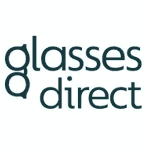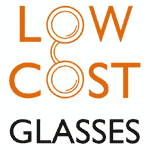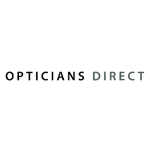Looking to get a new pair of specs? You could save £100s by buying glasses online, so read on for our top tips on how to find the best deals.
Credit: WAYHOME studio (left), Vulp (right), DeawSS (background) – Shutterstock
Buying glasses online is cheaper than getting them from a high street optician. Fact.
For instance, at the time of writing, the exact same pair of Ray-Ban glasses cost £240 at Boots Opticians, but just £127 from an online glasses retailer. That's a saving of almost 50%, and it's exactly the kind of discount you should expect when you're buying new glasses online.
To help you save money and find the perfect pair of specs, we've listed all the best places to buy glasses online, as well as what to look out for if this is your first time venturing beyond the likes of Boots, Specsavers and Vision Express.
Best places to buy cheap glasses online
These are the best websites for buying cheap prescription glasses:
-
Alensa
- Cheapest delivery – Free for orders over £49; £2.90 for orders under £49.
- Home trial – Not offered.
- Returns policy – Glasses can be returned within 14 days. However, Alensa will only refund the cost of the frames and not the lenses (full T&Cs).
- Student discount – None.
-
Glasses Direct
- Cheapest delivery – Free for Boutique orders or baskets totalling £75 or more; £3.95 for other orders.
- Home trial – You can order up to four frames at once to try for seven days, with an unlimited number of trials per customer. Delivery and returns are free (more info).
- Returns policy – Glasses can be returned within 120 days of the original dispatch date (full T&Cs).
- Student discount – 50% off 2-for-1 frames.
-
Glasses2You
- Cheapest delivery – Free for orders over £10; £2.95 for orders under £10.
- Home trial – Not offered.
- Returns policy – Glasses can be returned within 14 days of delivery (30 days for varifocals) (full T&Cs).
- Student discount – None.
-
Goggles4u
- Cheapest delivery – £4.95.
- Home trial – Not offered.
- Returns policy – If you don't like your new glasses, you can return them (usually within 15 dates of receiving them) for store credit (full T&Cs).
- Student discount – None.
-
Low Cost Glasses
- Cheapest delivery – Free for orders over £39; £3.95 per frame for orders under £39.
- Home trial – Not offered.
- Returns policy – Glasses can only be returned if they're damaged or faulty, not if you're simply unhappy with how they look or fit (full T&Cs).
- Student discount – 40% off on orders of £40 or more; 20% off on orders of £20 or more (more info).
-
Mister Spex
- Cheapest delivery – Free for orders of £29 or above; £2.99 for orders below £29.
- Home trial – You can order up to four frames at once to try for 10 days. Delivery and returns are free (more info).
- Returns policy – Glasses can be returned within 30 days of you receiving them, in exchange for a full refund (full T&Cs).
- Student discount – 15% off (more info).
-
Opticians Direct
- Cheapest delivery – £3.95.
- Home trial – Not offered.
- Returns policy – Glasses can be returned within 30 days, but Opticians Direct will only refund the cost of the frames, not the lenses (full T&Cs).
- Student discount – None.
-
SelectSpecs
- Cheapest delivery – Free for orders over £49; £5.95 for orders under £49.
- Home trial – Not offered.
- Returns policy – Glasses can be returned within 14 days of delivery for a full refund (full T&Cs).
- Student discount – None.
-
SmartBuyGlasses
-
SpeckyFourEyes
- Cheapest delivery – £4.99.
- Home trial – Not offered.
- Returns policy – Glasses can be returned within 14 days, however SpeckyFourEyes will only refund the cost of the frames, not the lenses (full T&Cs).
- Student discount – None.
-
Spex4less
- Cheapest delivery – £3.95.
- Home trial – One-week home trials are available for a select number of frames, but delivery and returns are not free. You'll also be charged an up-front fee (usually a proportion of the advertised cost of the products), which will be refunded when you return the glasses (full T&Cs).
- Returns policy – Glasses can be returned within 30 days for a full refund (full T&Cs).
- Student discount – None.
Tips for buying prescription glasses online
Here's everything you need to know when you're buying new glasses online:
-
Get a free eye test
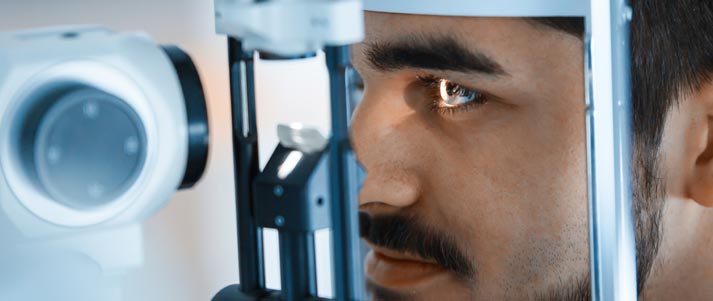
Credit: NDAB Creativity – Shutterstock
Before you buy a new pair of glasses online, you'll need to have a copy of your prescription so you can enter your specific requirements at the checkout.
To get a prescription, you'll need to have an eye test. Although a prescription officially lasts for two years, it's probably wise to get your eyes tested again if you're close to the time limit or if your vision regularly changes. After all, there's no point in shelling out for new glasses, only to realise they're not strong enough.
Eye tests tend to cost around £20 – £25, but there are ways to get them for free.
How to get free eye tests
Here are the best ways to get a free eye test:
- On the NHS – Your personal circumstances may entitle you to a free eye test on the NHS, including if you have a pre-existing medical condition or are aged 16–18 and in full-time education. Click here for the full list of eligibility criteria and remember that, in Scotland, eye tests are free for everyone.
- Special offers from opticians – While there's no guarantee that a promotion will be live when you need it, check to see if any opticians near you are offering free eye tests. Boots, Specsavers and Tesco have all done this in the past, so use these tips to scout out a free test.
- From your employer – If you work in front of a computer or laptop for the majority of the day, your employer must pay for you to have an eye test if you request it. Your employer may arrange the eye test for you, or they could ask you to keep the receipt and refund you. Either way, it's best to discuss it with them first, and you can show them this document if they're unaware of the legislation.
- Through your contact lens plan – If you have a contact lens subscription, you may find that your supplier includes free eye tests as part of your plan. Have a look and see if you can save yourself some money.
Regardless of whether you're planning to buy glasses from them or not, opticians are legally obliged to give you a copy of your prescription after conducting an eye test.
-
Measure your pupillary distance
Although opticians have to provide you with a copy of your prescription, there's one very important measurement missing from that piece of paper: your pupillary distance (PD).
As the name suggests, this is the distance between the centre of your pupils, and it's needed to ensure that you're looking through the optimum part of the lens when you're wearing your glasses.
Rather annoyingly, opticians have no obligation to measure your pupillary distance, and many will only do so if you're buying glasses from them. If yours refuses, you'll have to measure your PD yourself at home, and there are a couple of ways to do this.
Some online glasses retailers have an online tool to measure pupillary distance, like this one from Specsavers. Don't panic if your website of choice doesn't have one, as most of them use exactly the same tool, and you can simply record your measurement and use it on any site.
It's also possible to measure your PD using a ruler, although you may find a specialised tool like this gives a more accurate measurement. Either way, you'll likely need a second person to help you record your PD – and whether you're using an online tool or a ruler, make sure to take multiple readings to ensure you've got a reliable figure.
Finally, some websites will even offer to measure your pupillary distance using an existing pair of your glasses. However, you will need to send your specs to them in the post, which means you'll also need a second pair to wear while they're gone.
-
Try glasses on in person

Lots of online retailers have virtual try-on tools which use the webcam on your laptop or phone to show you what the glasses look like on your face. These are helpful to a point, but nothing quite matches up to trying glasses on in person – especially if you want to check lens size and comfort.
In the list of online glasses shops above, we've outlined which websites let you try the glasses on at home before buying. However, if you live or work near a high street optician, you can reduce your carbon footprint and save time by just popping in and trying glasses there.
Not every high street optician will have every pair of glasses, so it could be worth visiting two or three to try as many as possible. But, as long as the specs aren't the shop's own brand (or made by a super niche manufacturer), you should be able to find exactly the same pair online far cheaper.
To make sure you buy the same pair of glasses online that you tried on in person, make sure to note down the name and number of the model, as well as the lens size. These should be printed on the inside of one of the arms, as shown in the picture above.
Once you have this info, just search for the pair online and you're away!
-
Compare multiple websites for the best price
We've listed a whole host of websites selling glasses above, but there are dozens more out there.
While they'll almost all be cheaper than buying the same glasses from a brick and mortar store on the high street, there will be potentially significant differences in the cost of buying through each website.
Here are the main things to consider when comparing online glasses retailers:
- The total cost of the glasses (including lenses) and delivery
- How long the company estimates it will take for the glasses to be made and delivered to you
- Whether or not the website has any voucher codes or first-order discounts, or is listed on cashback sites
- How extensive their returns policy is, including how long you have to return the glasses, and whether or not lenses will be refunded too
- If they'll let you try the frames on at home before making a purchase.
-
Use optical vouchers for a discount
In addition to free eye tests, selected individuals who meet the NHS' criteria should also be eligible to receive an optical voucher, giving you a discount on the cost of your glasses.
There are 10 vouchers in total, labelled A–J, with values ranging from £39.10 all the way up to £215.50 – although, as you might expect, the highest-value vouchers are for the types of lenses that tend to cost the most.
Frustratingly, very few online glasses retailers accept NHS optical vouchers through their websites. In fact, of the companies we listed above, just one (Glasses Direct) accept the vouchers online (although they only accept four types, and you must live in Wiltshire to redeem them).
That said, it's still worth seeing if you're eligible, so check out our guide to getting cheap healthcare at uni.
And remember: glasses often cost so much less online that even if your website of choice doesn't accept NHS optical vouchers, it could still be a cheaper option than buying your new specs from a high street retailer that does.
-
Choose the right lenses
Once you've sorted your prescription, picked your frames and decided which website to buy your glasses from, you'll need to choose which type of lenses you'd like.
Each website will have its own way of describing the countless packages of filters and thinning options available for their lenses, but fundamentally they'll all be variations of the same few factors.
Glasses lens options
These are the main options you'll have when choosing the lenses for your glasses:
- Thinning – The stronger your prescription is, the thicker the lenses will be. As well as looking a bit unsightly, thicker lenses are usually heavier, which can make your glasses uncomfortable to wear for longer periods. Fortunately, you should have the option to thin your lenses – often for as little as £15.
- Scratch resistance – Although it's unlikely that scratched lenses will damage your vision, they can distract your gaze enough to cause strain and headaches. Adding a scratch-resistant coating to your lenses shouldn't add too much to the total price, especially as some websites will offer it as standard.
- UV protection – If you spend a lot of time outside, including driving, you may want to consider getting glasses with UV protection. According to Specsavers, regular lenses do a good job of blocking out UVB rays, but you'll need to get an extra coating to protect your eyes from UVA rays.
- Blue light filtering – Despite what you may have heard, there's actually very little evidence to suggest that the blue light emitted by screens can damage your eyesight. In fact, the level of blue light exposure from screens is significantly lower than that of natural daylight. This is all worth considering when deciding whether or not to pay extra for blue light filtering on your lenses.
-
Get your glasses fitted and adjusted in store
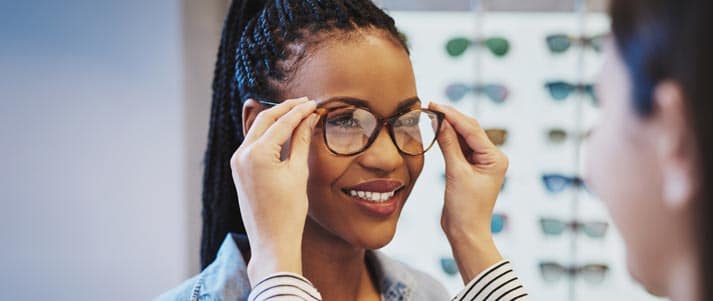
Credit: Flamingo Images – Shutterstock
One of the only downsides to buying your glasses online is that you won't be able to have them fitted and adjusted to your head size and shape as soon as you get them.
But that shouldn't be a problem, as most high street opticians are more than happy to do it for you, regardless of whether or not you purchased the glasses from them. And, best of all, they'll usually do it for free.
However, be warned that this isn't a universal rule. Some opticians may not offer the service, others may charge for it, and, in some cases, they may not offer to compensate you if the glasses break during adjustment (particularly if you didn't buy the pair from them).
With that in mind, it's best to check the optician's policy before handing over your glasses.
Our guide to getting cheap healthcare and dentistry as a student has everything you need to know about keeping yourself in tip-top condition.




